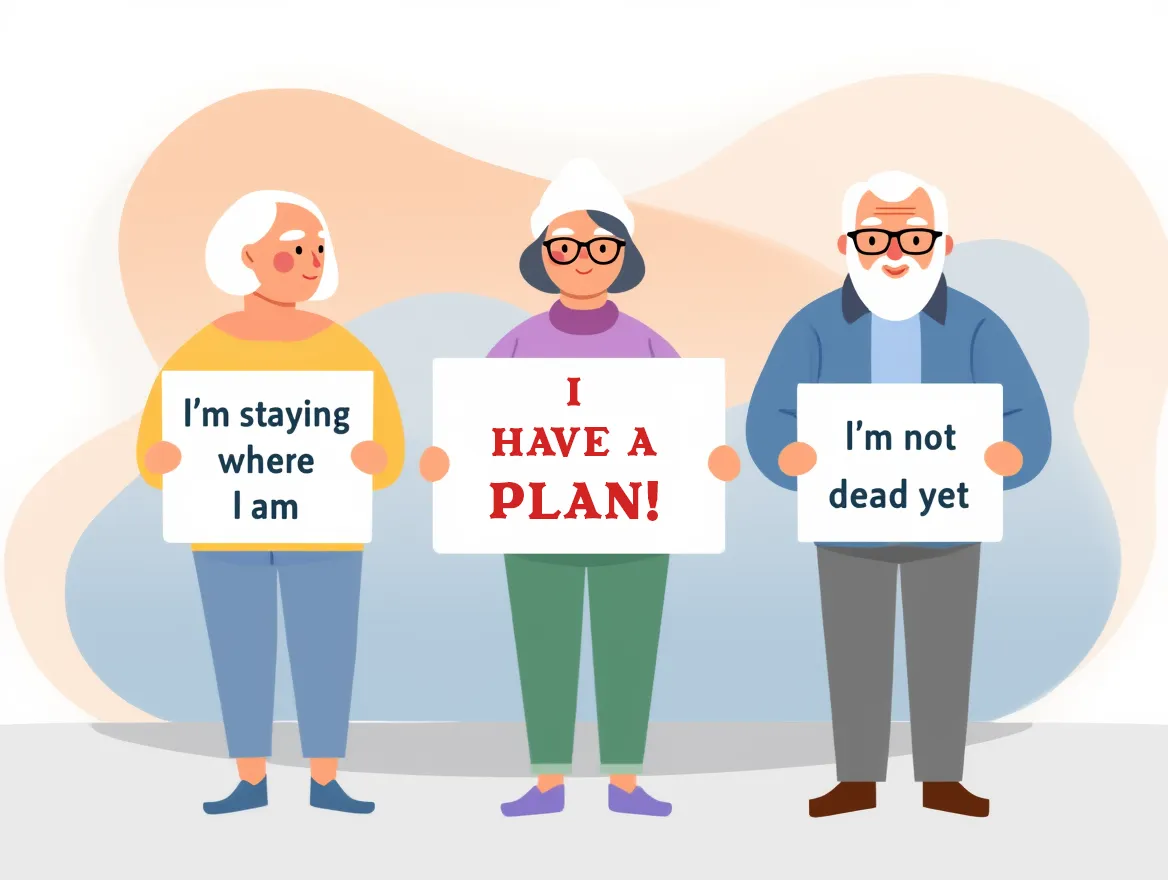The Takeaway:
- Medicare covers certain types of emotional and mental health counseling
- Services can include therapy for depression, grief, loneliness, anxiety, and trauma
- You may need to ask your counselor if they accept Medicare or provide a bill you can submit
- Paperwork is manageable but must follow specific steps to get reimbursed
- Emotional health matters just as much as physical health—don’t ignore it
As we get older, emotional challenges can begin to stack up. Loneliness after losing a partner, anxiety about health issues, or adjusting to life after retirement can all take a toll. Fortunately, Medicare may help cover the cost of counseling, giving seniors a path to healthier minds and better days.
Medicare Part B covers outpatient mental health services, including:
- Individual therapy to treat depression, anxiety, grief, and trauma
- Family counseling if it helps with your treatment
- Group therapy for shared experiences like bereavement or chronic illness
- Diagnostic evaluations to determine mental health needs
- Medication management if prescribed by a psychiatrist or qualified provider
To be covered, the services must be medically necessary and provided by a health professional who accepts Medicare, such as a:
- Psychiatrist
- Clinical psychologist
- Clinical social worker
- Nurse practitioner
- Licensed clinical professional counselor (LCPC) in some cases
Medicare will pay 80% of the approved amount for these services after you’ve met your Part B deductible. If you have a Medigap (Supplement) plan, it may cover the remaining 20%.
Note: Services from non-Medicare providers (such as many licensed counselors or therapists in private practice) won’t be reimbursed unless you submit the right paperwork and the provider is eligible.
Common Emotional Issues Medicare Counseling Can Help With
Some emotional concerns become more common with age:
- Loneliness and isolation (especially after the death of a partner or friends)
- Grief and bereavement
- Depression or anxiety caused by chronic illness, mobility issues, or memory loss
- Substance misuse (often tied to loneliness or unmanaged pain)
- Caregiver burnout (for those caring for spouses or adult children)
- PTSD from past trauma that resurfaces
These aren't just passing emotions—they can interfere with sleep, appetite, and overall health. Talking with a qualified counselor can help you navigate through these issues and regain a sense of peace and purpose.
Can You See a Counselor Who Doesn't Accept Medicare?
Yes—but with caution. Many counselors do not accept Medicare, especially in private practice. However, some may offer a “superbill,” which is a detailed invoice that you can submit directly to Medicare for potential reimbursement.
Before starting therapy, ask the counselor:
- Do you accept Medicare assignment?
- If not, can you provide a bill or “superbill” that I can submit?
- Are you enrolled in Medicare as a provider (this is required for reimbursement)?
Without this information, you may end up paying the full cost out-of-pocket without reimbursement.
How to Submit a Claim to Medicare
If your provider doesn’t submit the claim for you, you can file it yourself. Here’s how:
- Fill out Form CMS-1490S – This is the Patient’s Request for Medical Payment. You can download it here: https://www.cms.gov/medicare/cms-forms/cms-forms/cms-forms-items/cms012949
- Attach the provider’s bill – Include all the following:
- Provider’s name, address, and National Provider Identifier (NPI)
- Diagnosis code
- Procedure codes (CPT)
- Date of service
- Amount charged
- Include an itemized receipt or superbill – This needs to be detailed and legible.
- Mail the form and documents to your local Medicare contractor – The address is based on your state. You can find it at: https://www.medicare.gov/claims-appeals/how-do-i-file-a-claim
- Expect a response within 60 days – If approved, Medicare will reimburse you directly.
Additional Options
If your income is limited, you may qualify for:
- Medicaid (which may cover additional counseling services)
- Community mental health centers (which may offer sliding-scale rates)
- Veterans Affairs (VA) services if you’re a veteran
And don’t forget about telehealth. Since the pandemic, Medicare has expanded coverage for virtual mental health appointments—making it easier to get help from home.
Final Thoughts
Getting older brings new emotional landscapes. There’s no shame in needing help navigating them. If you’re struggling, don’t wait—reach out. Medicare may help cover the cost of talking to someone who can help you feel more like yourself again.
Just remember: Ask about Medicare billing up front, get the right paperwork, and follow through with the claim if needed. Your mental health is worth it.
Disclaimer: This article is for informational purposes only and is not a substitute for professional medical, mental health, or insurance advice. Medicare coverage rules can change, and individual situations vary. Please consult with a licensed mental health provider and your Medicare representative to confirm eligibility and coverage for any counseling services.










